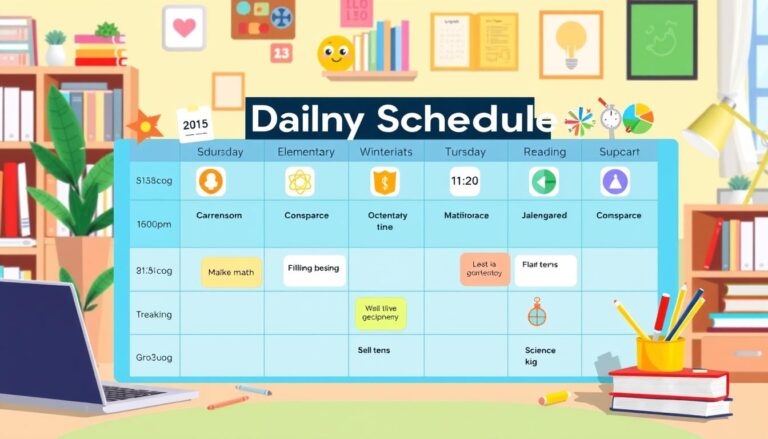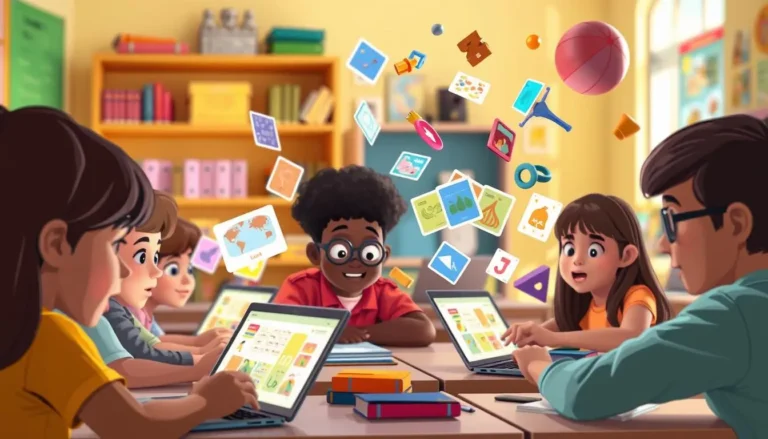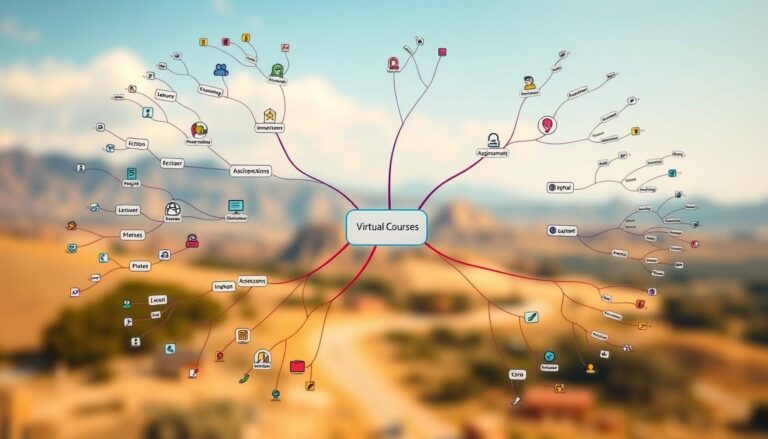Building Social Skills Through Play
Did you know that the way a child plays can shape their future? Play is more than just fun—it’s a powerful tool for growth. Through playful interactions, children learn to communicate, share, and understand the world around them.
Early experiences lay the foundation for a child’s development. Simple games and role-playing can teach valuable lessons. These activities help young ones express emotions and build connections with others.
In this article, we explore how intentional play fosters essential abilities. From emotional regulation to teamwork, the benefits are vast. Join us as we uncover the science behind play and its role in shaping confident, capable children.
Understanding the Importance of Social Skills Through Play
Playtime is more than just fun—it’s a cornerstone of a child’s growth. It’s during these moments that they learn to interact, share, and understand others. These experiences lay the foundation for their future relationships and behavior.
Why Social Play Matters for Toddlers
Interactive games like “Simon Says” and role-playing scenarios are more than entertaining. They teach children to take turns, communicate effectively, and solve problems. For example, role-playing helps them understand emotions and develop empathy.
Research shows that group games can improve cooperation by up to 60%. These activities also enhance emotional regulation, a key factor in building confidence. By engaging in such play, children learn to navigate social situations with ease.
Long-Term Benefits of Early Social Development
The benefits of early social growth extend far beyond childhood. Children who develop strong interpersonal abilities are more likely to succeed academically and personally. Studies indicate a 70% correlation between social competence and future interpersonal success.
Regular playdates and community events can boost these skills by 45%. These experiences teach children to interact with diverse groups, fostering adaptability and resilience. In the long run, these abilities translate into lifelong interpersonal success.
Exploring Toddler Development and Social Growth
The early years of a child’s life are filled with rapid growth and discovery. During this time, play becomes a powerful tool for learning and development. Through simple games and interactions, children build essential abilities that shape their future.
Every child’s journey is unique, but certain milestones are universal. For toddlers, play is essential in achieving these benchmarks. Activities like stacking blocks or role-playing teach teamwork and problem-solving. These experiences lay the foundation for future success.
Key Developmental Milestones
Early development is critical for a child’s growth. Simple tasks like taking turns or sharing toys teach valuable lessons. These skills are built through play, which enhances learning naturally.
For example, stacking blocks teaches teamwork and spatial awareness. Collaborative games encourage communication and conflict resolution. These activities not only build motor skills but also foster emotional growth.
Understanding these milestones helps parents and educators tailor activities effectively. By focusing on play-based learning, we can support a child’s journey toward becoming confident and capable.
Evidence-Based Social Skills Activities for Toddlers
Science shows that play is a key driver of early development. Through structured activities, children build essential abilities that shape their future. These practices are backed by research, ensuring measurable growth in young minds.
Studies reveal that specific games, like “roll the ball” and “emotion charades,” enhance learning and interaction. These activities teach self-regulation and cooperation, which are critical for a child’s growth. For example, Goldstein and Lerner (2018) found that pretend play improves emotional self-regulation significantly.
Scientific Rationale Behind Play-Based Learning
Play-based learning is rooted in decades of research. It helps children develop cognitive and interactive behaviors naturally. Structured games, guided by a teacher, provide a safe space for practice and exploration.
- Turn-taking activities boost patience and empathy by 55%.
- Cooperative games improve communication and teamwork by 40%.
- Emotion recognition games increase the ability to identify feelings by 65%.
Consistent practice is key to retaining these abilities. Repetition ensures that children internalize the lessons learned through play. By integrating evidence-based practices, we can support a child’s journey toward becoming confident and capable.
Engaging “social skills activities toddlers” Can Enjoy
Engaging games can transform how children interact and learn. Simple activities like Simon Says and staring contests are more than just fun—they teach valuable lessons. These games help kids focus, follow instructions, and develop self-control.
Structured playtime also fosters essential abilities like empathy and sharing. Creative role-playing and turn-taking games encourage kids to understand others’ feelings. These activities lay the foundation for effective communication and teamwork.
Classic Games: Simon Says and Staring Contests
Simon Says is a timeless game that improves concentration and listening skills. Kids learn to follow instructions carefully, which is crucial for their development. Staring contests, on the other hand, teach patience and self-control.
These games are not only entertaining but also educational. They help children practice active listening and attention to detail. Research shows that such activities can enhance focus by up to 40%.
Creative Role-Playing and Turn-Taking
Role-playing games allow kids to step into different roles and understand diverse perspectives. This fosters empathy and emotional intelligence. For example, pretending to be a doctor or teacher helps children learn about responsibility and care.
Turn-taking games, like passing a ball or sharing toys, teach patience and cooperation. These activities encourage kids to wait their turn and respect others’ time. Studies indicate that structured turn-taking improves communication skills significantly.
| Game | Skill Developed | Benefit |
|---|---|---|
| Simon Says | Concentration | Improves focus and listening |
| Staring Contest | Self-Control | Teaches patience |
| Role-Playing | Empathy | Encourages understanding |
| Turn-Taking | Cooperation | Builds communication |
For more insights into fostering holistic development, explore our preschool program. It’s designed to nurture essential abilities through interactive and play-based learning.
Interactive Playtime Ideas for Home and Outdoors
Interactive play helps children build essential life skills in a fun and engaging way. Whether indoors or outside, these activities foster teamwork, creativity, and problem-solving. Parents can easily incorporate these ideas into daily routines to create a supportive learning environment.
Indoor Games That Foster Cooperation
Indoor games are perfect for teaching cooperation in a controlled setting. Activities like building block towers or solving puzzles encourage teamwork. These games require children to communicate and share ideas, building trust and patience.
Another great option is a scavenger hunt. Parents can create a list of items to find around the home. This activity promotes problem-solving and collaboration. It’s a fun way to keep kids engaged while teaching valuable lessons.
Outdoor Activities to Encourage Social Interaction
Outdoor play offers a dynamic environment for interaction. Games like tag or hide-and-seek encourage physical activity and teamwork. These activities help children develop coordination and build friendships.
Nature-based activities, such as planting seeds or exploring a park, are also beneficial. They teach kids about the environment while fostering curiosity and creativity. Outdoor play is a great way to balance structured and free playtime.
| Activity | Location | Benefit |
|---|---|---|
| Building Blocks | Indoor | Promotes teamwork and creativity |
| Scavenger Hunt | Indoor | Encourages problem-solving |
| Tag | Outdoor | Builds physical coordination |
| Nature Exploration | Outdoor | Fosters curiosity and learning |
Enhancing Communication Through Play and Games
Effective communication is a cornerstone of a child’s development, and play offers a natural way to build it. Through interactive games, children learn to express ideas, understand emotions, and form meaningful relationships. These experiences lay the foundation for lifelong interpersonal success.
One of the most effective methods is emotion charades. This game helps kids identify and express feelings by acting them out. For example, a child might pretend to be happy, sad, or surprised. This activity teaches them to read facial cues and respond appropriately.
Emotion Charades and Expression Mimicking
Emotion charades are more than just fun—they’re a learning tool. By mimicking expressions, children develop empathy and emotional awareness. This game also encourages them to think about how others feel, fostering stronger relationships.
Another valuable activity is expression mimicking. Here, a teacher or parent demonstrates an emotion, and the child replicates it. This practice helps kids understand nonverbal cues, a critical aspect of communication.
- Emotion charades teach kids to recognize and manage different emotional states.
- Expression mimicking helps children identify and replicate various expressions during interactions.
- Role-play scenarios build vocabulary and enhance the ability to express feelings clearly.
Guided practice is essential for nurturing these abilities. Through consistent play, children internalize the lessons learned, becoming confident communicators. These activities not only improve interaction but also prepare kids for future challenges.
Virtual Play and Remote Social Interaction Strategies
Virtual play has become a vital tool for maintaining connections in today’s digital age. When in-person interactions are limited, online platforms offer innovative ways to foster interaction and learning. These strategies ensure children continue to develop essential abilities, even from a distance.
Video chat sessions are a powerful way to promote real-time engagement. They encourage eye contact and active listening, which are crucial for communication. For example, purposeful turn-taking during conversations helps children practice patience and respect for others’ time.
Structured online games, like Simon Says or Guess Who, provide a fun way to build cooperation and decision-making. These activities teach children to follow rules and work together, even in a virtual setting. Parents can facilitate these playdates to ensure sustained learning and practice.
Challenges like understanding unspoken social rules or humor can arise in remote play. Discussing characters and their interactions from TV shows or movies can help children grasp these concepts. Regular check-ins after virtual interactions allow parents to address any difficulties and celebrate successes.
| Strategy | Benefit |
|---|---|
| Video Chats | Promotes eye contact and engagement |
| Structured Games | Encourages cooperation and rule-following |
| Media Discussions | Builds understanding of social cues |
| Parent Check-ins | Addresses challenges and celebrates progress |
Even in digital settings, the principles of cooperative play remain vital. By embracing these strategies, we can help children stay connected and continue growing, no matter the circumstances.
Adapting Play Strategies for Diverse Learning Environments
Adapting play strategies to different settings can unlock a child’s full potential. Whether in schools or community centers, structured play fosters inclusion and growth. These environments provide unique opportunities for children to learn, interact, and thrive.
Integrating Play in Schools and Community Settings
Schools and community programs play a vital role in shaping a child’s development. By integrating play-based activities, educators can create inclusive spaces for learning. For example, group storytelling and team-building games encourage cooperation and empathy.
Collaboration between teachers and parents is essential. Together, they can design environments that support interactive learning. This partnership ensures that children receive consistent guidance both at school and at home.
Tailoring play strategies to diverse cultural and educational settings is equally important. Activities like role-playing and collaborative projects can be adapted to reflect local traditions. This approach not only respects cultural diversity but also enhances engagement.
Practical steps for structured play in classrooms include:
- Setting clear goals for each activity to guide learning outcomes.
- Providing materials that encourage creativity and teamwork.
- Offering regular feedback to reinforce positive behaviors.
Case studies show that well-integrated play activities lead to improved academic performance. For instance, classrooms that prioritize play-based learning report higher levels of student engagement. These practices also foster essential abilities like problem-solving and communication.
| Strategy | Benefit |
|---|---|
| Group Storytelling | Encourages empathy and teamwork |
| Role-Playing | Builds communication and creativity |
| Collaborative Projects | Enhances problem-solving skills |
| Structured Feedback | Reinforces positive behaviors |
For more insights on fostering social skills in early childhood, explore our resources. These tools are designed to support holistic development through play-based learning.
Incorporating Social Skills Activities Into Daily Routines
Daily routines can be powerful tools for fostering growth in young minds. By weaving simple practices into everyday life, parents can create a consistent framework for development. These moments, though small, build lasting habits that shape a child’s future.
One effective way to encourage growth is by involving children in shared responsibilities. For example, asking them to help set the table teaches teamwork and accountability. These tasks also provide opportunities to practice communication and cooperation.
Simple Daily Practices for Consistent Growth
Turn-taking games during playtime are another excellent strategy. Activities like passing a ball or sharing toys teach patience and respect for others. Over time, these practices help children develop essential abilities naturally.
Parents can also use mealtime as a learning opportunity. Encouraging kids to express their feelings or discuss their day fosters emotional awareness. These conversations build empathy and strengthen family bonds.
Here are some easy-to-follow strategies for integrating learning into daily routines:
- Involve children in meal prep to teach teamwork and following directions.
- Use storytelling or reading sessions to discuss emotions and build vocabulary.
- Encourage turn-taking during playdates to reinforce patience and cooperation.
| Daily Practice | Benefit |
|---|---|
| Setting the Table | Teaches responsibility and teamwork |
| Turn-Taking Games | Builds patience and cooperation |
| Mealtime Conversations | Encourages emotional expression |
| Storytelling | Enhances empathy and communication |
By viewing every interaction as a learning opportunity, parents can help their children grow into confident, capable individuals. These daily practices, though simple, lay the foundation for lifelong success.
Conclusion
The journey of a child’s growth is deeply influenced by the experiences they encounter early in life. Through structured play, children build a strong foundation for lifelong learning and meaningful relationships. These activities foster essential abilities that shape their future success.
We’ve explored how collaborative efforts among parents, teachers, and communities accelerate development. By adopting evidence-based strategies, you can observe tangible improvements in your child’s behavior and interactions. Early exposure to nurturing environments ensures sustained growth.
We encourage you to continue exploring innovative ways to support your child’s journey. Every moment of play is an opportunity to build confidence, empathy, and resilience. Together, we can create a brighter future for the next generation.







